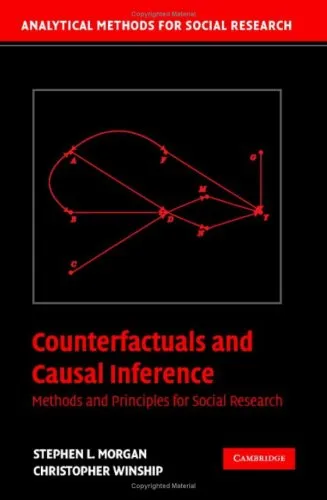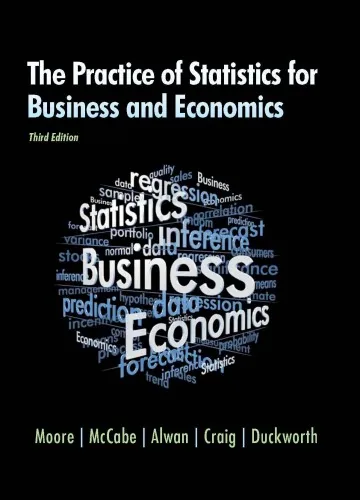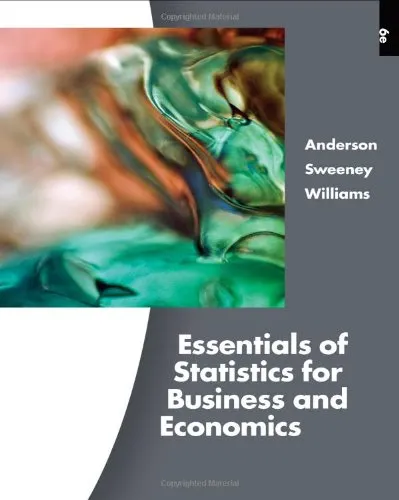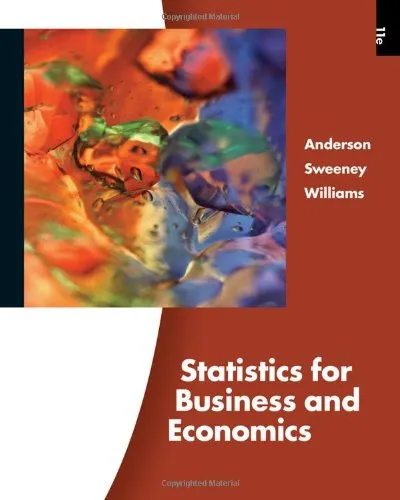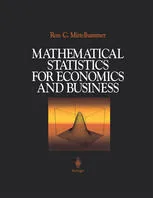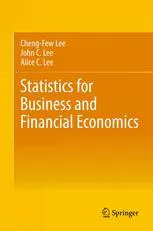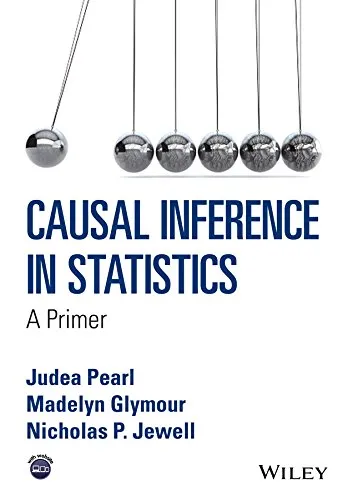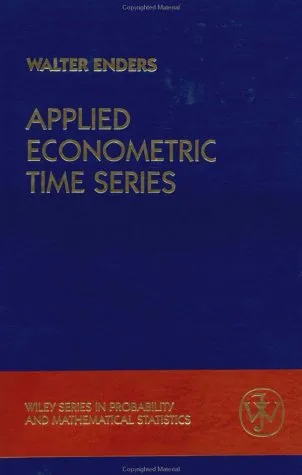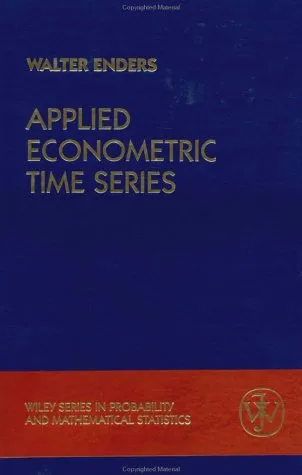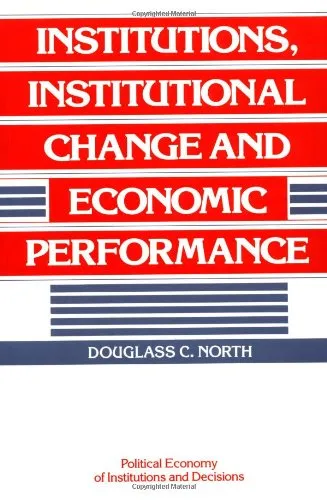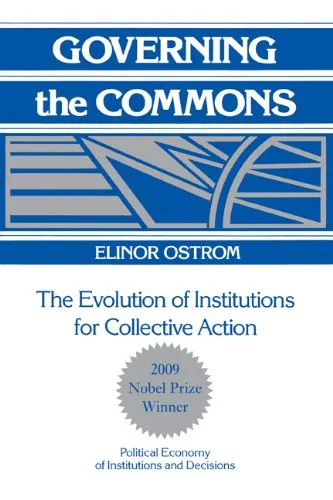Counterfactuals and Causal Inference: Methods and Principles for Social Research (Analytical Methods for Social Research)
4.5
بر اساس نظر کاربران

شما میتونید سوالاتتون در باره کتاب رو از هوش مصنوعیش بعد از ورود بپرسید
هر دانلود یا پرسش از هوش مصنوعی 2 امتیاز لازم دارد، برای بدست آوردن امتیاز رایگان، به صفحه ی راهنمای امتیازات سر بزنید و یک سری کار ارزشمند انجام بدینکتاب های مرتبط:
معرفی جامع کتاب "Counterfactuals and Causal Inference: Methods and Principles for Social Research"
کتاب "Counterfactuals and Causal Inference: Methods and Principles for Social Research" از جمله آثار برجسته در حوزه تحقیق اجتماعی است که به بررسی دقیق مفاهیم علیت و نظریههای counterfactual در مطالعات اجتماعی میپردازد. این کتاب توسط Stephen L. Morgan و Christopher Winship نگاشته شده و ابزارها و اصولی را ارائه میدهد که محققان را قادر میسازد فرآیندهای علی را در دادههای اجتماعی تجزیه و تحلیل کنند.
خلاصهای جامع از کتاب
کتاب در ابتدا مفاهیم بنیادی causal inference را معرفی کرده و توضیح میدهد که چگونه دستیابی به علیت در پژوهشهای اجتماعی چالشبرانگیز است. موضوع اصلی کتاب تاکید بر نقش مدلهای counterfactual در طراحی تحقیق و تحلیل دادهها است. نویسندگان از ساختارهای نظری مختلفی مانند مدلهای potential outcomes و causal diagrams بهره میبرند تا بتوانند چارچوبی منسجم و قابل اجرا در تحقیقات اجتماعی ارائه دهند.
کتاب به سه بخش اصلی تقسیم شده است:
- مبانی نظری علّیت و تحلیل counterfactuals
- روشهای عملی، شامل تحلیل تجربی و استفاده از دادههای مشاهداتی برای استنتاج علی
- کاربردها و مطالعات موردی که نشاندهنده تأثیر نظریههای علی در مباحث اجتماعی است
نویسندگان با بهرهمندی از نمونههای واقعی و روششناسی قوی، تلاش کردهاند تا نظریات پیچیده را با زبانی سادهتر به خوانندگان ارائه کنند.
نکات کلیدی کتاب
- نقش کلیدی مدلهای potential outcomes در درک فرآیندهای علی
- اهمیت تعیین شرایط counterfactual برای استنتاجهای معتبر
- چالشهای عملی در استفاده از دادههای اجتماعی برای تحلیل causation
- بررسی کاربردهای عملی، شامل مطالعات آموزشی، اقتصادی و اجتماعی
- ادغام مفاهیم آماری با نظریات اجتماعی برای ایجاد تحلیل قوی و کاربردی
جملات معروف از کتاب
"Counterfactual reasoning is not just a method; it is a way of thinking about the world."
"Causation in social science requires us to move beyond correlation to mechanisms."
"Potential outcomes provide the foundation for conceptualizing causal effects."
چرا این کتاب مهم است؟
کتاب "Counterfactuals and Causal Inference" یکی از منابع برجسته برای محققانی است که به دنبال درک عمیقتر از روابط علّی در علوم اجتماعی هستند. این کتاب نه تنها ابزارهایی کاربردی و موثر برای تحلیل دادههای اجتماعی ارائه میدهد، بلکه خوانندگان را به چالش میکشد تا به روشی متفاوت درباره پرسشهای تحقیقاتی خود بیندیشند. تلفیق مفاهیم تئوریک با مطالعات تجربی و تاکید بر دقت و اعتبار در استنتاج علیتی، این اثر را به یک منبع بیبدیل در حوزه خود تبدیل کرده است. برای دانشجویان و محققان علوم اجتماعی، سیاستگذاری و اقتصاد، این کتاب راهنمایی ضروری به شمار میآید.
Introduction to "Counterfactuals and Causal Inference: Methods and Principles for Social Research"
"Counterfactuals and Causal Inference: Methods and Principles for Social Research" by Stephen L. Morgan and Christopher Winship is an authoritative guide focusing on the theoretical foundations, methodological approaches, and applications of causal inference in social science research. This book combines clear explanations, robust methodologies, and practical research examples to bridge the gap between causal inference theory and its real-world applicability. It is an essential resource for researchers, students, and professionals in sociology, economics, education, public health, and other fields where causal relationships are vital for understanding social phenomena.
Detailed Summary of the Book
The book begins with a foundational discussion of causality and counterfactual reasoning, emphasizing why understanding "what could have happened" is critical for making causal inferences. It delves into core topics, including the potential outcomes framework, mediation analysis, and various models for understanding causation in complex systems.
Moving beyond theory, Morgan and Winship provide an in-depth exploration of statistical methods used for causal inference, such as propensity score matching, instrumental variables, and regression discontinuity designs. The book is structured in a way that gradually builds the reader's understanding—from basic causation concepts to advanced techniques applicable in empirical research. It reflects the interplay of qualitative reasoning, statistical modeling, and robust research design, which are crucial for deriving valid and reliable causal conclusions.
With its emphasis on counterfactual thinking and its integration of advanced quantitative methodologies, the book addresses both experimental and observational research contexts. By providing examples drawn from real-world scenarios, it highlights how causal inference can inform policy decisions, evaluate program effectiveness, and uncover the mechanisms behind social behaviors.
Key Takeaways
- Causal inference requires careful thought about counterfactual scenarios, which help contextualize what would have happened in the absence of specific interventions or treatments.
- The potential outcomes framework is a foundational concept for both experimental and observational studies aiming to infer causation.
- Statistical methods such as matching, instrumental variables, and regression discontinuity are powerful tools to estimate causal effects, provided their assumptions are understood and met.
- Causal relationships can rarely be definitively proven in social research, but careful research design and robust statistical analyses can strengthen causal claims significantly.
- The interplay between theoretical frameworks and data-driven approaches is central to producing actionable insights in any field relying on causal understanding.
Famous Quotes from the Book
"Causal claims are the endpoint of rigorous inquiry, not its starting point."
"Counterfactuals are not fantasies; they are grounded in reality and designed to help us reason through cause and effect."
"The challenge of causal inference lies not in the sophistication of methods but in the validity of the assumptions underlying those methods."
Why This Book Matters
In an era when data-driven decision-making is increasingly essential, "Counterfactuals and Causal Inference: Methods and Principles for Social Research" stands as a cornerstone text for understanding causality in complex social systems. Unlike standard statistical texts that focus solely on correlation, this book dives into the nuances of causation—helping readers make stronger and more defensible causal claims in their research.
Its importance arises from both its clarity and its relevance across multiple disciplines. Whether evaluating the impact of a social policy, understanding educational inequalities, or determining the drivers of public health outcomes, the methodologies and principles discussed in this book are indispensable.
Furthermore, the authors’ ability to combine mathematical rigor with accessible examples makes the book appealing to readers with diverse backgrounds, from aspiring graduate students to seasoned social scientists. It connects theory and practice in a way that fosters critical thinking and empowers researchers to engage confidently with the increasingly data-rich world around them.
دانلود رایگان مستقیم
شما میتونید سوالاتتون در باره کتاب رو از هوش مصنوعیش بعد از ورود بپرسید
دسترسی به کتابها از طریق پلتفرمهای قانونی و کتابخانههای عمومی نه تنها از حقوق نویسندگان و ناشران حمایت میکند، بلکه به پایداری فرهنگ کتابخوانی نیز کمک میرساند. پیش از دانلود، لحظهای به بررسی این گزینهها فکر کنید.
این کتاب رو در پلتفرم های دیگه ببینید
WorldCat به شما کمک میکنه تا کتاب ها رو در کتابخانه های سراسر دنیا پیدا کنید
امتیازها، نظرات تخصصی و صحبت ها درباره کتاب را در Goodreads ببینید
کتابهای کمیاب یا دست دوم را در AbeBooks پیدا کنید و بخرید
1315
بازدید4.5
امتیاز0
نظر98%
رضایتنظرات:
4.5
بر اساس 0 نظر کاربران
Questions & Answers
Ask questions about this book or help others by answering
No questions yet. Be the first to ask!
